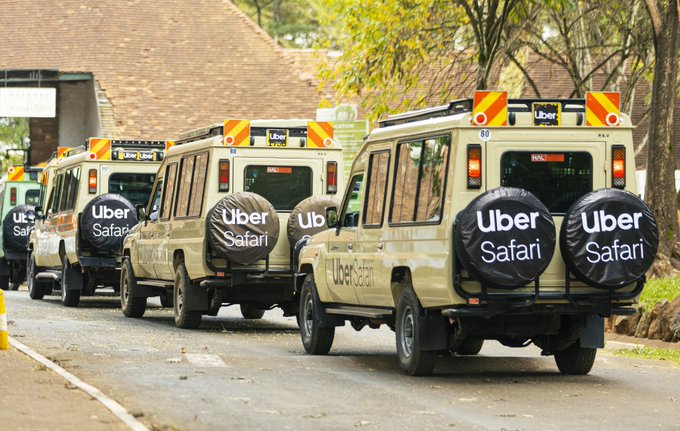NAIROBI, Kenya– Safari operators in Nairobi are pushing back against Uber’s entry into the country’s multi-billion-shilling tourism sector, warning that the launch of “Uber Safari” could undermine decades of investment in conservation, quality, and community livelihoods.
The ride-hailing company unveiled Uber Safari last week, promising tourists a seamless way to book game drives in Nairobi National Park through its app.
Uber says the platform will open new earning opportunities for local fleet owners and guides and boost Kenya’s tourism economy.
But operators say the move is less about opportunity and more about disruption.
“Uber Safari may seem like innovation, but in truth it is a threat to Kenya’s safari heritage,” said Susan Manyonge, Managing Director of Beaumont Tours and Travel.
“It risks starving conservation efforts and reduces the safari experience to a cheap, transactional product.”
Uber has introduced Uber Safari, a new service that allows riders to book wildlife drives through Nairobi National Park directly on its app, as the company marks a decade of operations in Kenya. ynews.digital/newsflash/uber…
“Tourism Must Remain Ours”
The concern is not just about business competition – it is also about ownership.
Tourism contributes 10.4 percent of Kenya’s GDP and remains one of the most locally rooted industries, with thousands of small operators depending on it for survival.
“For me, this is about sovereignty,” said Lynnie Masika, CEO of Travis Adventures.
“Tour and travel should be owned and run by Kenyan people. No foreign country would ever allow Africans to freely set up tour agencies, so why should we open the gates here?”
Masika pointed to Tanzania’s President Samia Suluhu Hassan, who restricted foreigners from dominating small-scale businesses, calling the move “strategic” for protecting domestic entrepreneurs.
In Kenya, you can request an Uber Safari.One of these vans will show up and take you on a 3-hour game drive at the Nairobi National Park for about $190 (Ksh 25,000)
Concerns Over Quality and Conservation
Industry associations warn that Uber’s model could erode hard-won gains in quality standards and conservation.
Raymond Cheruiyot, CEO of Tour Operators, said:
“Game drives and safaris aren’t just transport but memories. Our members are trained, regulated, and committed to conservation. If Uber bypasses this ecosystem, service delivery and sustainability will suffer.”
Cheruiyot urged Uber to collaborate with local associations rather than roll out parallel systems.
“There is room for tech in tourism, but it must strengthen, not weaken, what we’ve built,” he added.
@uber_kenya launches a taxi hailing Safari product, aims at tapping growing parks visits demand in Kenya.
A Divided Market
Still, not all voices are critical.
Some argue that Uber Safari could break entrenched cartels in the sector and lower costs for tourists.
A Nairobi-based tour guide, who requested anonymity, said the app could “liberate the market from middlemen” and attract younger, tech-savvy travelers who prefer on-demand services.
Uber insists its model will complement, not compete with, existing operators.
In 2023, the company says it generated Sh2.7 billion in value for Kenya’s tourism sector and plans to open Uber Safari exclusively to local fleet owners and guides.
Crossroads for Tourism
The dispute underscores a larger question: how should Kenya balance global digital disruption with the preservation of a uniquely local industry?
For now, safari operators appear united in their skepticism, fearing that one of the country’s most iconic experiences could be stripped of its cultural and conservation value.
“The safari is not just a ride in a park,” said Manyonge. “It is our story, our heritage. We cannot afford to lose that to an app.”






